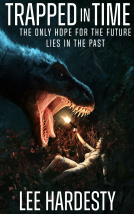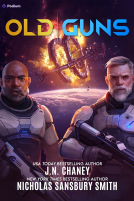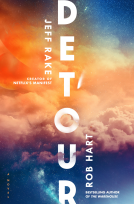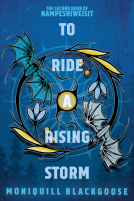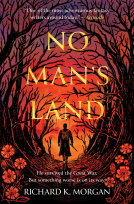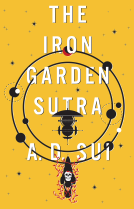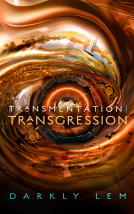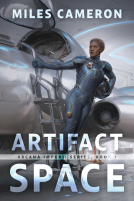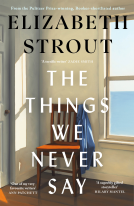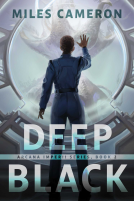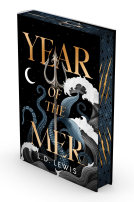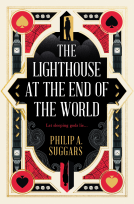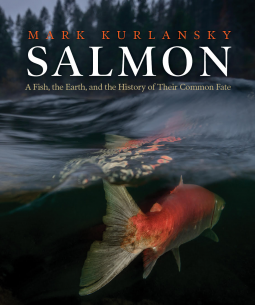
Salmon
A Fish, the Earth, and the History of Their Common Fate
by Mark Kurlansky
This title was previously available on NetGalley and is now archived.
Send NetGalley books directly to your Kindle or Kindle app
1
To read on a Kindle or Kindle app, please add kindle@netgalley.com as an approved email address to receive files in your Amazon account. Click here for step-by-step instructions.
2
Also find your Kindle email address within your Amazon account, and enter it here.
Pub Date Mar 03 2020 | Archive Date Oct 21 2021
Talking about this book? Use #MarkKurlansky #NetGalley. More hashtag tips!
Description
“In championing a critically important part of the natural world, Kurlansky sounds an urgent alarm that commands our attention.” –Kirkus Reviews
"Henry David Thoreau wrote, 'Who hears the fishes when they cry?' Maybe we need to go down to the river bank and try to listen."
In what he says is the most important piece of environmental writing in his long and award-winning career, Mark Kurlansky, best-selling author of Salt and Cod, The Big Oyster, 1968, and Milk, among many others, employs his signature multi-century storytelling and compelling attention to detail to chronicle the harrowing yet awe-inspiring life cycle of salmon.
During his research Kurlansky traveled widely and observed salmon and those who both pursue and protect them in the Pacific and the Atlantic, in Ireland, Norway, Iceland, Japan, and even the robust but not as frequently visited Kamchatka Peninsula. This world tour reveals an eras-long history of man’s misdirected attempts to manipulate salmon and its environments for his own benefit and gain, whether for entertainment or to harvest food.
In addition, Kurlansky’s research shows that all over the world these fish, uniquely connected to both marine and terrestrial ecology as well as fresh and salt water, are a natural barometer for the health of the planet. He documents that for centuries man’s greatest assaults on nature, from overfishing to dams, from hatcheries to fish farms, from industrial pollution to the ravages of climate change, are evidenced in the sensitive life cycle of salmon.
With stunning historical and contemporary photographs and illustrations throughout, Kurlansky’s insightful conclusion is that the only way to save salmon is to save the planet and, at the same time, the only way to save the planet is to save the mighty, heroic salmon.
"In more than 40 years of writing, this is the scariest thing I've ever learned. The oceans, especially the Northern Atlantic, are losing the ability to provide food. If the oceans can no longer feed the things that are supposed to live in it, then we're sunk." - Mark Kurlansky, from an interview on Maine Public Radio
A Note From the Publisher
Advance Praise
"It is a beautiful book, spangled throughout with stunning color photographs of a lovely fish, of pristine streams and landscapes. It’s a coffee-table book shrunk to shelf-size, but the images are pertinent and illuminating, and there is nothing throwaway about the text that surrounds them." –Wall Street Journal
“If there was ever a totem species for the planet, it's the noble salmon--back and forth between ocean and stream, between salt and fresh water, these creatures have nurtured our imagination as surely as our bodies. This book does them justice!” –Bill McKibben, bestselling author and environmentalist
“Mark Kurlansky’s Salmon makes the species an ecological poster child and a microcosm of the environmental challenges we face.” –Foreword Reviews
“In championing a critically important part of the natural world, Kurlansky sounds an urgent alarm that commands our attention.” –Kirkus Reviews
Marketing Plan
National media campaign
Author tour (virtual & in-person)
Reader's Guide available
Audiobook published by Penguin Random House
National media campaign
Author tour (virtual & in-person)
Reader's Guide available
Audiobook published by Penguin Random House
Available Editions
| EDITION | Other Format |
| ISBN | 9781938340864 |
| PRICE | $30.00 (USD) |
| PAGES | 416 |
Average rating from 5 members
Featured Reviews
Salmon, A Fish, the Earth and a History of Their Common Fate by Mark Kurlansky is a fascinating dive into the wonderful, interesting and often sad tale of this beautiful fish.
We start with ‘The tale of two fisheries', which takes is behind the scenes into two commercial fishing operators, one employing a number of rookies to work the nets during the salmon run and the other a much smaller solo operator – catching less fish but still able to make a living. Either way, it seems like incredibly hard work. It also gives us some insight into the issues and challenges thrown at these operators and the fish they are trying to catch.
The author then teaches the reader about the life cycle of Salmon (he mainly uses Sockeye and Atlantic Salmon as examples). They lay their eggs hundreds or thousands of kilometres upstream, these are then fertilised by the male fish. After the little blighters have hung around their gravel beds for a while and are big enough – they head out to sea. This is where they fatten up to eventually return to the SAME river and end up at the SAME place to start the cycle again, and then sadly......die. Their urge to breed being more powerful than the will to live. They live for around 6 or 7 years.
The author describes how these beautiful animals are excellent indicators of environmental health. This, due to the fact they live inland in freshwater and also in the ocean in saltwater. He explains how industrialisation has trashed their environment, clogging up rivers with waste, warming the waters, chemicals, sawdust...and so much more. We have made life impossible for Salmon in countless places. In fact, there is a need for us to farm these fish which in itself creates a whole host of other issues.
Indigenous communities have eaten salmon for millennia. They worship the fish, and respect it’s home. Whereas Western incursions, population growth and industrialisation has done the opposite.
Sometimes I wonder whether we deserve this planet , and the animals and plants in it. We are so determined to destroy this place, Earth would be better off without us. What do we do, to make this place better? This book really made me reflect on our purpose here. I’m not sure if this is the author’s intention, as he doesn’t smack us around the head with this message. But for me, it had this effect.
On a brighter note, this is a beautifully presented book with lots of fantastic colour pictures of the environment and the star of the show, the Salmon. Some of the colour changes of the fish when they re-enter the river , and their physical changes are astounding. The author also throws in numerous recipes, even some from Indigenous Indian culture.
This is a good book, it’s interesting and it’s subject matter is important. I highly recommend this one.
4 Stars
Many thanks to NetGalley for providing me with a copy of this book in exchange for a review.
I've read a lot of Mark Kurlansky books, because I've really enjoyed the way he takes one thing - salt, in particular - and investigates its history and place in the human and natural world. Sometimes his work can feel a bit too general; I think this is a function of the format and his purpose, which is to present a wide-ranging view of the chosen topic. However, he does also present specifics - vignettes, effectively, to illuminate a broader point.
All of these comments stand for Salmon.
The first chapters are largely about the biology of the fish, which is way more complicated than I had realised - what even is a salmon, basically?? - and about its natural habitat and habits. Most salmon return to their natal spawning ground for their own spawning, and then die, which is just a whole thing when it comes to life cycles and how on earth they find their way back to a particular river after hanging out in the ocean for a variable number of years.
Much of the rest of the book is a litany of how humans have placed the existence of salmon in peril: through destruction of habitat in a multitude of ways, and directly through overfishing. Kurlansky touches on several ways in which indigenous peoples in what are today the USA and Canada and Japan used and managed salmon over hundred or thousands of years to demonstrate the possibility of living in balance... but all of that is against the construction of dams and other ways that 'progress' and 'civilisation' have led to the destruction of rivers, in particular. Honestly most of this book was pretty depressing to read. There's so much we just don't really understand about how to make it possible for salmon stocks to redevelop... which leads to further catastrophe in the food web. Salmon is, to an extent, just a symbol for how much the last 300-odd years of industrial development have ravaged the environment. So that's fun.
If you can handle the story of environmental destruction, this is a readable and generally approachable book. As noted above, Kurlansky necessarily goes in for some generalisations - it's a result of making a readable book for the general public, I think. But he does present specifics - about particular rivers, about particular indigenous groups, about particular styles of fishing, and so on - and there's no doubt that he's put an enormous amount of research and work into telling this story. It's a sobering read, and it's a worthwhile one.
Mark Kurlansky has a gift for being able to convey the story of a topic comprehensively while keeping the reader interested. Salmon is a comprehensive look at the different species of fish we refer to as salmon. Detailed information is presented on biology of salmon, the ecology of salmon looking at both the marine biome and terrestrial biome. Readers will finish this book with a wealth of knowledge about salmon, and conservation issues facing salmon and other marine life. Highly recommended reading for everyone. Should be required reading for science majors.
 Montzalee W, Reviewer
Montzalee W, Reviewer
Salmon
A Fish, the Earth, and the History of Their Common Fate
by Mark Kurlansky
This book is so thoroughly researched! This is the bible of salmon! It has everything! Their biology, history of where they have been and when, who fished them, the ecology around them, life cycles, and things I would never have thought to research! Anything that effects the salmon is in here! What do they eat? Who eats them? Where do they go? Wild vs raised?
Oh, and recipes! Oh my! Not just for salmon. Beer bread anyone?
Climate change and other issues that are effecting them and how. All of this and so much more. I was very impressed with this book. If you are an animal lover, fish lover, or just interested in nature then this is for you. It's not written in scientific jargon either. Just every day language so we can all come together and help these beautiful fish!
I received this book from NetGalley and the review is my own opinion.
I really enjoyed Salmon by Mark Kurlansky, having read his book Cod, and really enjoying that too. It's not just an education on the different species of salmon, their fascinating fresh-saltwater lifecycles (though not always), but also of the history around salmon, from the Indigenous peoples around the world that have hunted them (especially the Ainu in Hokkaido, Japan, and the Native Americans), to the colonialists who came along and, to put it bluntly, messed it all up and overfished them - some species having very precarious positions now indeed.
You can see a lot of Kurlansky's respect for the salmon in this book. It's clear that while he generally avoids anthropomorphising, he - like many others - finds their journey to spawn heroic and admirable. Their ability to adapt in almost any circumstance (except, sadly, overfishing) incredible.
I learned a lot of things I wasn't previously aware of in this book, especially relating to the fact that fish farming creates massive issues with sea lice, and the further issues they cause with nearby wild salmon. Fish farm diseases hurting wild salmon is an issue I wasn't aware of, and am glad to be more informed on. Likewise, I wasn't aware of organised crime in Russia focusing on huge salmon poaching rings, and how much of a money-maker that can be.
Two quibbles with this book, though they're pretty minor. The recipes didn't really seem like useful recipes people could use, so much as historical or contextual recipes, which isn't a bad thing by any means, but actually came to feel a little jarring after a while. Likewise, while the book is called 'Salmon' - it could easily be called 'the North American Story of Salmon' quite comfortably. With only two or three forays into UK, Norwegian and Japanese salmon fishing, the focus is almost wholly on the relationship that North Americans and Native Americans have with salmon, and the other mentions feel less centralised. This book is going to assume you understand a bit about North American geography and history, things that are not taught in many schools all around the world. So it's definitely a book suffering a wee bit from some cultural imperialism.
I did like that Kurlansky spent a lot of time debunking the myth that Native Americans didn't overfish because their populations were sparse, they didn't overfish because they educated themselves and each other about overfishing and how to avoid it. Likewise, a lot of attention is given to how much colonialists have really just made everything not much fun for everyone, from the massacres and seizing of unceded land from Native Americans, to the first canneries that exploited Chinese immigrants horrendously, to the mostly unsuccessful or problematic hatcheries and disease-breeding fish farms, to the rich (mostly white, male) practice of fly fishing, proof that you can toy with an animal that you don't intend to use for food, and certainly don't need for food.
In many ways this book is a damning essay on how colonialism simply makes creatures go extinct en masse, and certainly comes close to destroying the ones that haven't disappeared yet.
I think this book would be very much enjoyed by anyone interested in salmon in general, or anyone who - like me - has an interest in wild creatures, environmentalism, colonialisation, and history. It has a broad reach! Anyone looking for recipes would probably be better off looking elsewhere though!
